Cows produce fertilizer and can help reduce the labor of growing rice — the main source of food for all families in Cambodia. Phanny is 35 years old and the mother of four children https://www.procuradoresenlared.es/filipino-families/ under the age of 11. A member of the Brave Women, she’s easy to recognize by her warm, dimpled smile and thick, shiny black hair.
Taking the lead role in the performance has made her “feel that I gained confidence – not by someone giving it to me”. ChendaWhen the show ended, the audience applauded before the actors started the scenes again. But this time, the audience raised their hands – calling “stop, stop!
Hay also credited the students’ talents with raising the women’s level of engagement and interaction in Khmer, Cambodia’s official language. Neath’s aunt sold her farmland in Cambodia and brought the $3,000 profit to the parents of the woman Neath met in the market. Once that deal was done, the woman helped Neath escape, along with two other Cambodian women who were also running away from forced marriages.
- CWDA is dedicated to promoting the self-reliant development of disadvantaged Cambodian communities and to the advancement of women’s and children’s rights.
- These groups empower women by teaching sustainable agriculture and income-generating skills, creating a community-based savings and loan program, and by teaching women how to work together to solve problems and keep their children safe.
- The primordial task which lies before them is to stand in the front line against imperialism, particularly U.S. imperialism.
- The views and opinions of authors expressed on this website do not necessarily state or reflect those of the NCI, and may not be used for advertising or product endorsement purposes.
The project will promote gender equity and family nutrition by understanding and breaking down the barriers to women’s participation in the value chains for SI. Our gendered perspective focuses on access to and control over horticultural goods produced using SI techniques and their local and regional find more on https://absolute-woman.com/asian-women/cambodian-women/ value chains. While the project will focus on the four provinces of Siem Reap, Battambong, Pursat, and Kampong Thom, our aspiration is to have the approach serve as a model for the entire country and region. Moreover, our project stresses the importance of markets and will enhance efforts to move Cambodian agriculture towards a market-driven system. Designed to increase cervical cancer screening among Cambodian American women.
International Fashion Houses Are Leaving Millions of Asians Jobless. The Workers Are Now Protesting
More importantly, having the ability to generate income and care for their family gives parents hope for the future—hope that they pass on to their children. To begin repairing trust among villagers, Holt helped form community groups in every village where we work, open to the mothers or grandmothers of children in child sponsorship. These groups empower women by teaching sustainable agriculture and income-generating skills, creating a community-based savings and loan program, and by teaching women how to work together to solve problems and keep their children safe. Buth, the director of CLA, says that during the Khmer Rouge, the elite exploited the close-knit nature of communities to enslave the peasant class and force them to work for the revolution. As a result, people opted to work individually to protect their rights. Even today, villages are afraid to trust one another — a fear that makes it easier for traffickers to prey on children and more difficult for families to sustain a profitable business. When families fear working together, the whole community suffers.
Visit the Activity Page for Feed the Future Innovation Lab for Food Safety
13.8% of Cambodian women were reported as being illiterate in 2019. In 2004, it was reported that only 16% of the girls in Cambodia were enrolled in lower secondary schools.
Encouraging Sponsored Children to Dream
We partnered with local NGO Cambodian Organization for Child Development in 2013 and Children and Life Association in 2015. To close the gap, researchers developed a workshop to build female farmers’ capacity in leadership skills, collaboration and food safety knowledge. For the curriculum, program coordinator Katheryn Gregerson tapped experts from KSU’sStaley School of Leadership, but researchers also wanted to ensure the content and language connected with the women’s lives and experiences. Utilizing a “train the trainer” approach, they mentored in-country co-trainers for the workshops through a month-long virtual leadership training. Participants included 20 Cambodian university students majoring in food science and technology at the Royal University of Agriculture and the Institute of Technology of Cambodia .
They provide trainings to help the women improve rice yield and host workshops about topics like composting or vaccinating baby chicks. Holt-sponsored children often attend, too, just to play with friends or watch what their mothers or grandmothers are learning. In recent years, we’ve bolstered our programs that aim to strengthen families vulnerable to separation.
Her pig pen is in the back right of the frame.Even today, discussing collective issues in a public setting remains brave — especially for women. But, while conceptually new, gatherings like the women’s groups are actively reversing one of the most long-standing outcomes of the Khmer Rouge regime — the crushed ability to dream of a better future. Within days of taking over the government, Khmer Rouge leaders forced everyone to join ranks. Buddhist places of teaching, pagodas, were turned into prisons and interrogation centers. Tens of thousands of people were unjustly arrested, tortured and forced to confess treason.
About 80% agreed that men and women should share those tasks equally. Still, because the majority of women work outside the home, domestic tasks create a “double burden” in which they’re under pressure to perform at their jobs and then work more at home.
Henda usually spends her days in her rural village collecting scrap metal and looking after her seven children. But on a recent afternoon, the 42-year-old woman wore a drawn-on moustache and checked men’s shirt as she staggered around a makeshift stage by a busy road, playing a drunk husband shouting at his wife. Equal Times is a trilingual news and opinion website focusing on labour, human rights, culture, development, the environment, politics and the economy from a social justice perspective. Throughout the nation’s history and within national legislation, men and women in Cambodia have always had equal rights. These laws mean that they can own property, “bring property into a marriage”, and claim the property as their own if they choose to do so.

